Question Number 56831 by maxmathsup by imad last updated on 24/Mar/19
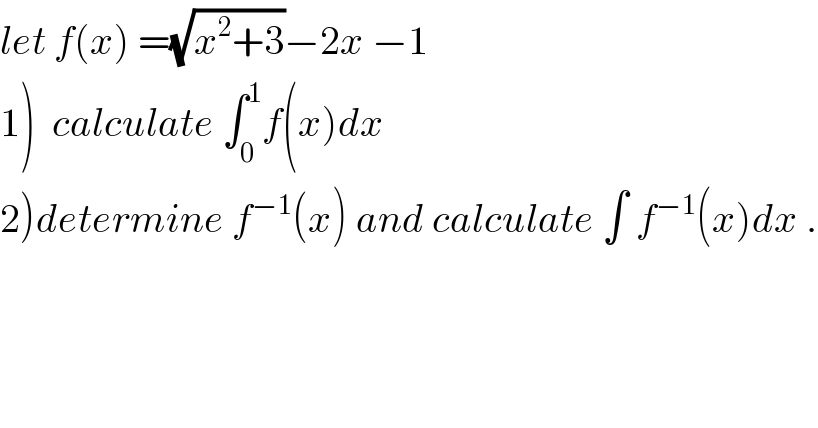
Commented by kaivan.ahmadi last updated on 25/Mar/19
![I=∫_0 ^1 (√(x^2 +3))dx x=(√3)tgα⇒dx=(√3)sec^2 αdα (√(x^2 +3))=(√3)secα { ((x=0⇒α=0)),((x=1⇒α=(π/6))) :}⇒ I=3∫_0 ^(π/6) sec^3 αdα= (1/2)secαtgα+(1/2)ln∣secα+tgα∣]_0 ^(π/6) = ((1/2)×((√3)/2)×((√3)/3)+(1/2)ln(((√3)/2)+((√3)/3)))−0= (1/4)+(1/2)ln(((5(√3))/6)) J=∫_0 ^1 (−2x−1)dx=−x^2 −x]_0 ^1 = (−1−1)−0=−2 ∫_0 ^1 f(x)dx=I+J=((−7)/4)+(1/2)ln(((5(√3))/6))](https://www.tinkutara.com/question/Q56833.png)
Commented by kaivan.ahmadi last updated on 24/Mar/19
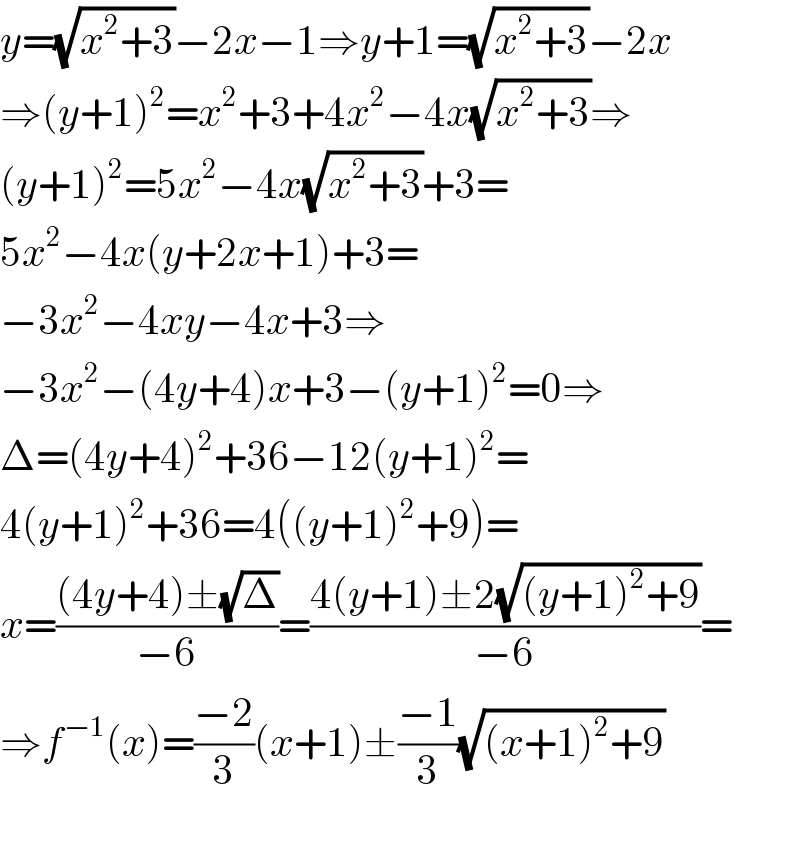
Commented by Abdo msup. last updated on 25/Mar/19

Commented by kaivan.ahmadi last updated on 25/Mar/19

Commented by maxmathsup by imad last updated on 25/Mar/19

Commented by maxmathsup by imad last updated on 26/Mar/19
![1) ∫_0 ^1 f(x)dx =∫_0 ^1 (√(x^2 +3))dx −∫_0 ^1 (2x+1)dx ∫_0 ^1 (2x+1)dx =[x^2 +x]_0 ^1 =2 ∫_0 ^1 (√(x^2 +3))dx =_(x=(√3)sh(t)) ∫_0 ^(arsh((1/( (√3))))) (√3)ch(t)(√3)ch(t)dt =3 ∫_0 ^(argsh((1/( (√3))))) ((1+ch(2t))/2)dt =(3/2) argsh((1/( (√3)))) +(3/4) [sh(2t)]_0 ^(argsh((1/( (√3))))) =(3/2)ln((1/( (√3))) +(√(4/3))) +(3/8)[e^(2t) −e^(−2t) ]_0 ^(argsh((1/( (√3))))) =(3/2)ln((√3)) +(3/8){ 3−(1/3)} =(3/4)ln(3) +1 ⇒∫_0 ^1 f(x)dx =(3/4)ln(3)−1 .](https://www.tinkutara.com/question/Q56892.png)
Commented by kaivan.ahmadi last updated on 26/Mar/19

Commented by maxmathsup by imad last updated on 26/Mar/19

Commented by maxmathsup by imad last updated on 30/Mar/19
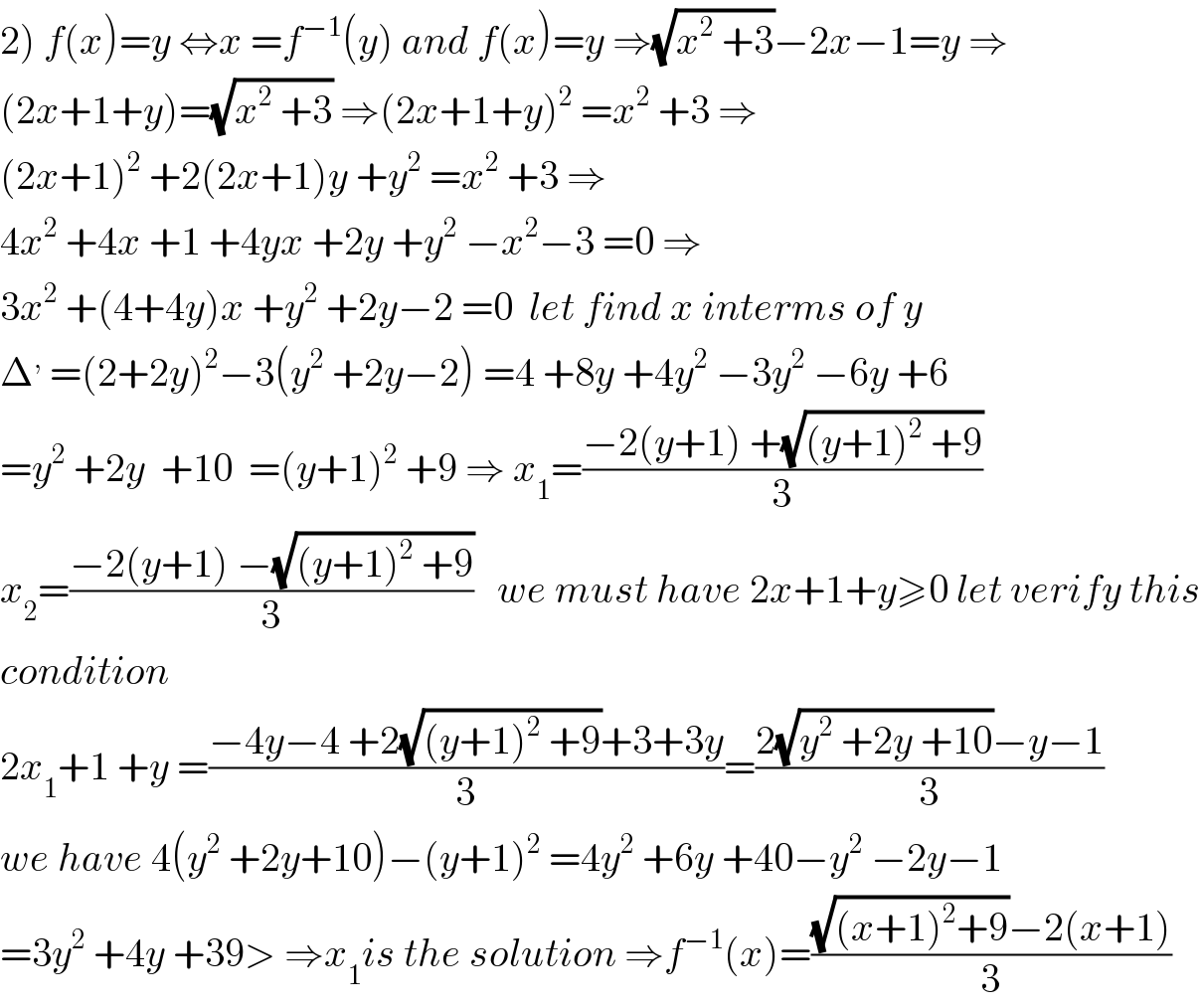
Commented by maxmathsup by imad last updated on 30/Mar/19
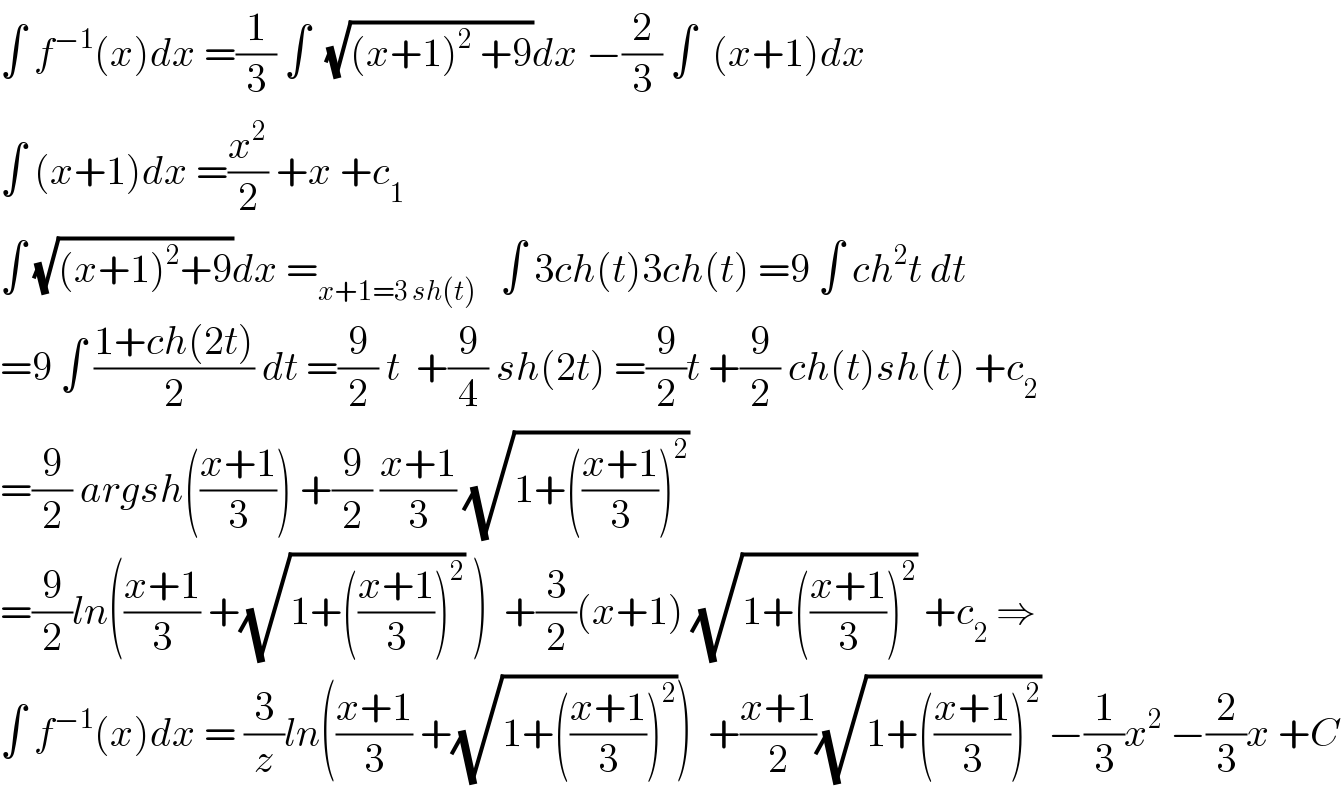
Answered by MJS last updated on 25/Mar/19
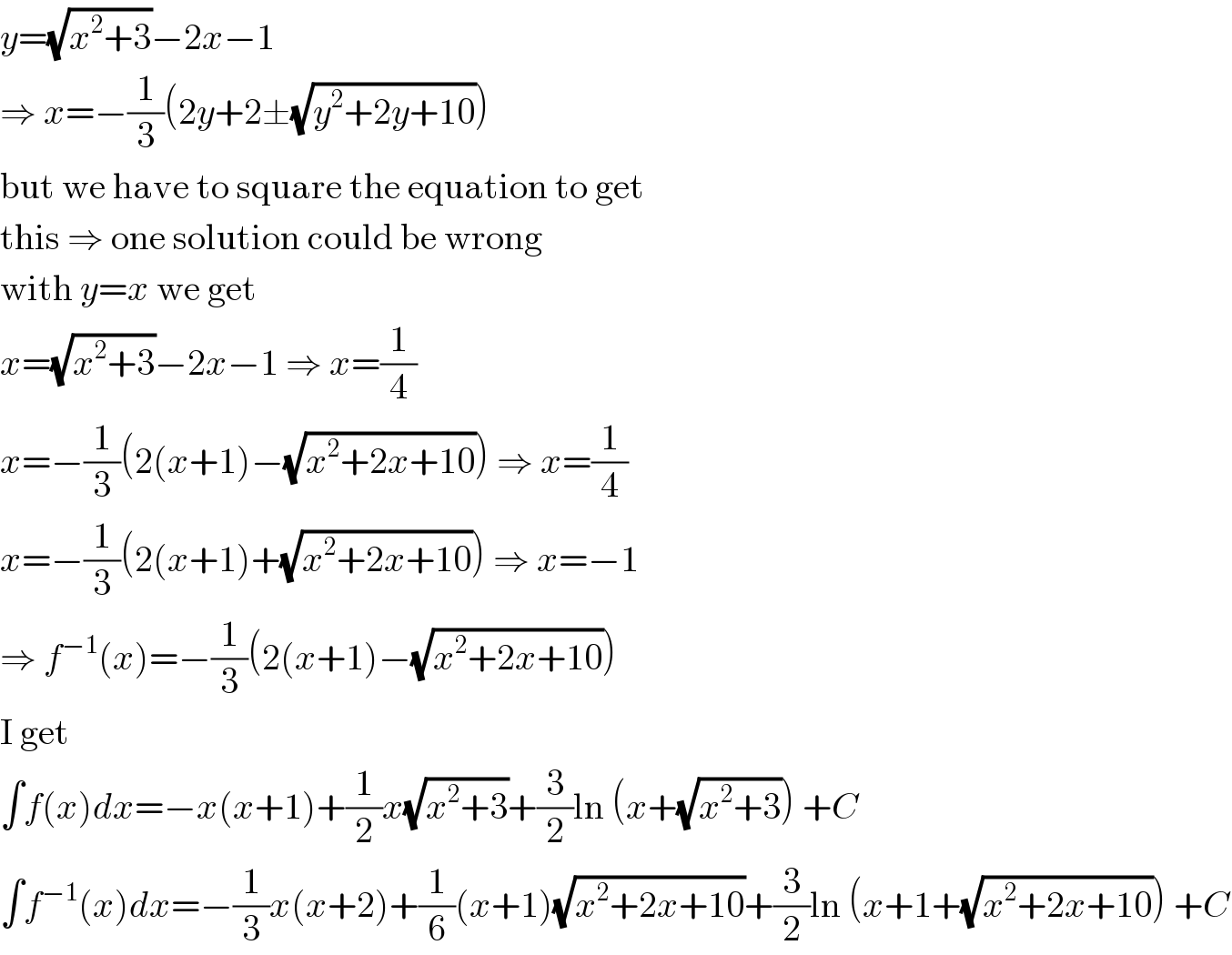
Commented by kaivan.ahmadi last updated on 25/Mar/19

Commented by maxmathsup by imad last updated on 25/Mar/19

Commented by MJS last updated on 25/Mar/19
![F(x)=−x(x+1)+(1/2)x(√(x^2 +3))+(3/2)ln (x+(√(x^2 +3))) F′(x)=(d/dx)[−x(x+1)]+(d/dx)[(1/2)x(√(x^2 +3))]+(d/dx)[(3/2)ln (x+(√(x^2 +3)))] (d/dx)[−x(x+1)]=−2x−1 (d/dx)[(1/2)x(√(x^2 +3))]=(1/2)((√(x^2 +3))+(x^2 /( (√(x^2 +3)))))=((2x^2 +3)/(2(√(x^2 +3)))) (d/dx)[(3/2)ln (x+(√(x^2 +3)))]=(3/2)((1/(x+(√(x^2 +3))))(1+(x/( (√(x^2 +3))))))= =(3/2)(((x−(√(x^2 +3)))/(−3))×((x+(√(x^2 +3)))/( (√(x^2 +3)))))=(3/(2(√(x^2 +3)))) −2x−1+((2x^2 +3)/(2(√(x^2 +3))))+(3/(2(√(x^2 +3))))= −2x−1+((2x^2 +6)/(2(√(x^2 +3))))=−2x−1+((x^2 +3)/( (√(x^2 +3))))= =(√(x^2 +3))−2x−1](https://www.tinkutara.com/question/Q56883.png)
